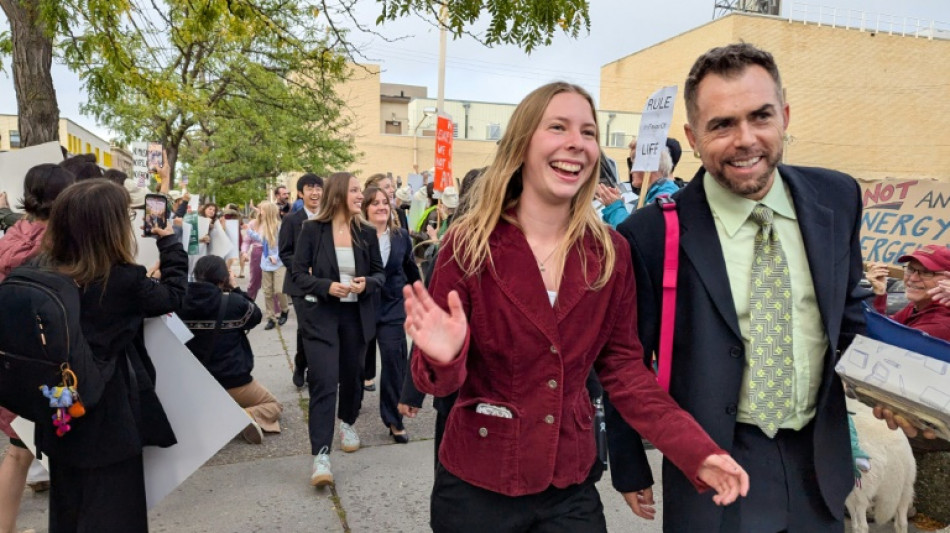

Judge 'reluctantly' tosses youth case challenging Trump climate policies
A federal judge on Wednesday "reluctantly" dismissed a lawsuit brought by young Americans accusing President Donald Trump's administration of threatening their constitutional right to life and liberty through its aggressive fossil-fuel push.
Judge Dana Christensen said that while the plaintiffs had presented "overwhelming" evidence that the government's actions would worsen climate change and harm them, the case to overturn them "must be made to the political branches or to the electorate."
"With this understanding in mind, the Court reluctantly concludes...that it cannot grant Plaintiffs the relief they seek," he wrote.
Trump, who received hundreds of billions of dollars from Big Oil in the runup to the 2024 election, has made expanded fossil fuel extraction the centerpiece of his energy policy, while curbing permits for solar and wind farms and ending tax credits for renewables.
In a filing earlier this year, 22 plaintiffs -- including several minors and represented by the nonprofit Our Children's Trust -- asked the court to block three executive orders they said violated their inalienable rights by seeking to "unleash" more drilling.
They also accused the administration of eroding federal climate science, leaving the public less informed about mounting dangers.
Julia Olson, the youths' lead lawyer, vowed to swiftly appeal.
"We will definitely appeal and get it up to the Ninth Circuit as quickly as we can so that they can correct this injustice, and give these young people their right to be heard in the federal courts," she told AFP. The Ninth Circuit is a higher court.
She called the decision "completely wrong" and an "anathema to the entire US Constitution and the entire purpose of the separation of powers among the three branches of government," adding it places fossil fuel interests "above the health and safety of children."
- Emotional testimony -
During a two-day hearing last month in Christensen's packed courtroom in Missoula, Montana, the youths described in vivid testimony how global warming had reshaped their lives.
Among them was Joseph Lee, an undergraduate from California who suffered a life-threatening heat stroke, and Jorja McCormick of Livingston, Montana, who said she was traumatized by wildfires that forced her family to flee their home.
Christensen, an Obama appointee known for previous environmental rulings, listened intently and frequently engaged with witnesses as the plaintiffs called experts in climate science, energy economics, politics and law and children's health.
Those included climatologist and Nobel Peace Prize co-winner Steve Running, and John Podesta, a former senior White House official who testified about the legal nature of executive orders.
Government lawyers, on the other hand, did not call their own witnesses and did not focus on disputing the reality of climate change.
Instead, they argued that the lawsuit was fundamentally undemocratic and echoed Juliana v. United States -- a similar youth-led case that featured some of the same plaintiffs and wound through the courts for nearly a decade before the Supreme Court declined to hear an appeal last year, closing it out.
While lawyers for the youths contended the case differed from Juliana in key ways, Christensen disagreed and concluded that his hands were tied by the precedent set by that case.
"Plaintiffs have presented overwhelming evidence that the climate is changing at a staggering pace, and that this change stems from the rise in atmospheric carbon dioxide, caused by the production and burning of fossil fuels," Christensen wrote.
He added that they had also shown "overwhelming evidence that implementation of the Challenged EOs will increase the concentration of atmospheric carbon dioxide, thereby exacerbating the harms Plaintiffs experience from an already-warming climate."
But he ruled their injuries could not be redressed by a court, saying he was troubled by being asked to reset national energy policy to its state before Trump's second term -- and by the idea of having to monitor every climate action by the government if he sided with the plaintiffs.
J.Khan--MT




